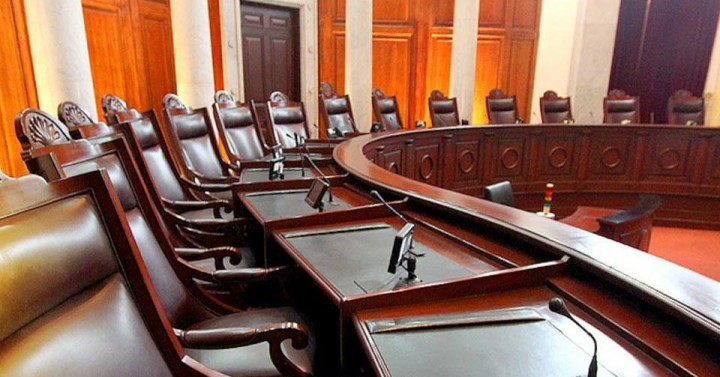The 1987 Constitution is arguably the most important law in the Philippines. As the supreme law of the country, it establishes the structure of the government, defines the rights of citizens, and guides all other Philippine laws.

Introduction
The Philippines’ Legal System draws its roots from an amalgamation of customs, authorities, and influences. Its rich historical background and unique constitution make it a fascinating subject to explore.
Historical Background of Philippines Law
The legal history of the Philippines can be traced back to its early days of colonization. Initially under the influence of indigenous customs and Islamic Law, it subsequently came under Spanish and American rule. Both of these colonial periods had a profound impact on the legal fabric of the country. Spanish law, for instance, influenced the criminal laws and civil codes, while American jurisprudence shaped the constitutional framework, including the Philippines’ Bill of Rights.
Overview of the Constitution
The present Constitution of the Philippines, also known as the 1987 Constitution, was enacted after the end of the Marcos dictatorship, marking the restoration of democracy. It serves as the supreme law of the land, outlining the country’s political structure, enumerating the rights and responsibilities of the citizens, and establishing the principles governing the State.
Analysis of The 1987 Constitution
The 1987 Constitution is a landmark document that frames the political and legal discourse in the Philippines. Its preamble, Bill of Rights, and key provisions have guided the nation through various political and social transitions.
Preamble and Its Significance
The Preamble to the 1987 Constitution starts with the words “We, the sovereign Filipino people…” This declaration places sovereignty in the hands of the Filipino people and sets forth the aspirations and objectives of the Constitution. It signifies unity, democracy, and the pursuit of common good, justice, freedom, love, equality, and peace.
The Bill of Rights
The Bill of Rights in the 1987 Constitution is a crucial component that lays out the fundamental rights of the Filipino people. These include, but are not limited to, the right to due process, equality before the law, freedom of speech, and religion. It serves as a safeguard against potential abuses of power by the government.
Key Provisions and Amendments
There are several key provisions in the 1987 Constitution that have significantly influenced the country’s governance. Notable among them is the system of checks and balances, the separation of powers, and the creation of independent constitutional bodies such as the Commission on Human Rights. Furthermore, the Constitution has undergone several amendments to address the evolving needs of society and to provide legal solutions for the country’s pressing issues.
Importance of The 1987 Constitution
The 1987 Constitution holds an important role in shaping the social, political, and economic landscape of the Philippines. It upholds democracy, safeguards human rights, and also has significant economic implications.
Upholding Democracy and Rule of Law
The 1987 Constitution upholds the principles of democracy and rule of law in the Philippines. It promotes popular sovereignty by asserting that power fundamentally resides in the people. As the highest law of the land, it sets forth the structure of a democratic government, outlines the process of fair and free elections, and mandates the separation of powers among the three branches of government – the Executive, Legislature, and Judiciary. This structure promotes accountability, checks potential abuses of power, and ensures the just and fair application of laws.

Protection of Human Rights
The 1987 Constitution protects the fundamental rights of individuals. The Bill of Rights – a significant part of the Constitution – ensures freedoms and rights such as freedom of speech, freedom of religion, the right to a fair trial, and protection against unlawful searches and seizures. Furthermore, it establishes the Commission on Human Rights to investigate human rights violations and to promote human rights awareness.
Economic Implications
The 1987 Constitution also has vital economic implications. It outlines the State’s responsibility to promote a just and dynamic social order that ensures prosperity and independence through policies that provide adequate social services, promote full employment, ensure a rising standard of living, and improve the quality of life for all. Moreover, the Constitution’s provisions regarding property rights, contracts, and business practices help to create a stable and predictable legal environment for economic activity. It also emphasizes the role of the state in negotiating international economic treaties and agreements, thus shaping the country’s economic interactions with the rest of the word
The Role of The 1987 Constitution in Governance
The 1987 Constitution plays a pivotal role in shaping the governance of the Philippines. It determines the structure of the government, outlines the election process, and establishes the principle of separation of powers.
Structure of the Government
The 1987 Constitution lays the framework for the structure of the Philippine government. It establishes a democratic, republican state where sovereignty resides in the people and all government authority emanates from them. The Constitution divides the government into three co-equal branches: the Executive branch, headed by the President; the Legislative branch, composed of the Senate and the House of Representatives; and the Judicial branch, headed by the Supreme Court. Each branch has distinct powers and responsibilities, creating a system of checks and balances.
Election Process
The 1987 Constitution provides comprehensive guidelines on the election process in the Philippines. It ensures the conduct of regular and special elections for public offices and mandates the creation of an independent body, the Commission on Elections, to enforce and administer all laws relating to elections. The Constitution also includes stipulations about candidacy qualifications, term limits, and procedures for contesting election results, which together ensure a democratic, fair, and transparent electoral process.
Separation of Powers
The 1987 Constitution firmly establishes the principle of separation of powers among the three branches of government. This constitutional doctrine prevents any single entity from gaining absolute power and promotes a system of checks and balances. The Executive, Legislative, and Judicial branches each have distinct and limited roles, and each branch can check the actions of the others. For example, while the Legislature makes laws, the Executive executes them, and the Judiciary interprets them. This design protects against abuses of power and upholds democratic governance.